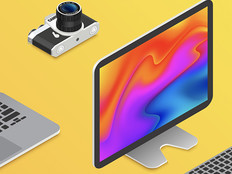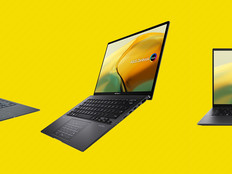Know Your Users When Buying New Computers
It’s a new year and possibly time for a fresh start. But that might be a challenge if you’re using the same old computers. And there’s no better time to “refresh,” as the big companies say, especially now that Windows 7 has just about erased the memory of Vista.
Because no one has the money to refresh everything at once, you need a plan to get the biggest bang from your upgrade buck. Let's look at three areas of your technology that will strongly influence which equipment you refresh and what new equipment will do the best job.
Make the Leap to Windows 7
First, as mentioned earlier, Windows 7 has earned the right to be adopted without reservation. Some enterprises still cling to Windows XP, but do so usually because of Oracle or SAP or some other highly customized application that needs XP and Internet Explorer 6 (which means enterprise application needs are trumping security concerns).
How can you tell Windows 7 is working? Because there are already rumors about Windows 8. If you still have Windows XP around, don't wait for 8 — get on 7 now. Windows 8 will take a year longer to release than the schedule that was recently leaked, meaning 2013 or so.
Notebooks Are the New Desktops
Most people upgrade to Windows 7 when they get a new computer. Then the hard question: What type of computer? Should you go for more desktops to replace the ones you have? Before automatically replacing old desktops with new models, study your situation. Companies large and small are replacing desktops with notebook computers on a regular basis. Notebook prices are lower than ever, but their feature list is longer than ever.
The days of assuming a notebook can't do the work of a desktop are gone, unless you're doing serious number crunching or audio/video production. Notebooks made primarily for stationary use are called desktop replacements, and they're great. I bought my son a notebook for Christmas that has a gorgeous 17.3-inch screen and a full numeric keypad. I had a hard time not putting my name on the tag and giving him some shirts.
One reason companies buy notebooks to replace desktops is to allow users to take their primary computer to meetings or even home to work. Mobility tools are getting more hype than almost anything else, and Wi-Fi networks at your company and in many retail locations change the work habits for some users. Ditching the desktop anchor for a mobile notebook supports collaboration in the office and makes telecommuting easier. With the “interesting” weather so far this winter, making it possible to work remotely may be quite handy.
Tablets Offer New Options
Finally, you should consider whether some users are able to get by with a “near” computer rather than automatically assuming everyone needs a regular desktop or notebook. As mobile computing becomes more common, consider whether your wandering users need full notebooks, a netbook (lower power and smaller size) or a tablet. Apple's iPad obviously rules as the King of Tablets, but a barbarian horde of about 70 new tablet models launched at the Consumer Electronics Show are about to storm the castle.
Tablets are a good choice for users who primarily consume rather than create information. The universe of new and cheap applications for iPad have created new ways to solve old business problems, and these may be perfect for some of your users.
Have users track what they do in a computer log for a week or two, and you'll find that some can get by quite nicely with a tablet rather than a notebook. No tablet is ready to be considered as a desktop replacement, but quite a few million users have found a tablet can replace or augment a desktop quite nicely.
Replacing desktops with new desktops and notebooks with new notebooks is the traditional way to refresh your equipment. But examine what your users are doing with their computers and where they're doing it. You may find the refresh choice is an entirely different product type than what it replaces. Everyone likes new, but new and different is even better.







